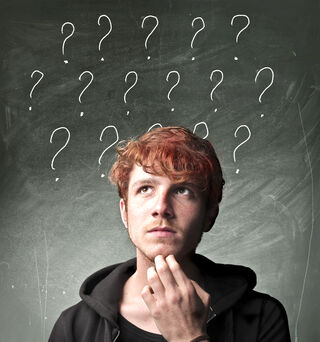Anxiety
What Did You Really Learn in School?
Certainly not the tools for daily living.
Posted May 12, 2022 Reviewed by Kaja Perina
Key points
- We remember so little of what we "learned" in school.
- What we "learned" hasn't really helped us with life.
- We need to learn the tools to deal with stress and challenge.
- We need to learn that we are each a member of the global community.

When you emerged from your mother’s womb no one thrust a User’s Manual into your tiny hands. As you grew, your parents likely did the best they could with what they had, which was often woefully inadequate. And the schools you attended, more like institutionalized assembly lines, moved you along for 8, 12, 16 or 20 years, stamped you DONE, handed you a piece of paper, and popped you out into the world labeled READY.
But ready for what?
How much do you remember of what you learned in the fourth grade? In the eighth grade? Or, if you went to college, in your junior year? How much do you actually recall from the thousands of hours you spent sitting in so many desks in so many classrooms from the time you were six years old until you were “done”?
Chances are you answered, Little, or Nothing.
What We Learn vs. What We Need to Know
For the last fifty years I have taught at every level of the educational system—from preschool to medical school. Concurrently I’ve worked as a performance psychologist with children, adolescents and adults who’ve had trouble with school: they couldn’t pay attention, they didn’t understand or see the relevance of subject matter, they got anxious every time a test rolled around, they wouldn’t obey the rules.
Over the years I’ve noticed a shift: disaffected students today are more likely to directly express their frustration and dissatisfaction with school than students in the past. How often I hear nowadays, Why do I have to learn all this shit? What does it have to do with my life?
And when I hear students say this I nod, sadly, in agreement.
The gulf between what we really “learned” in school and what we need in life is regrettably vast. In school, we learned how to do the least amount at the last possible moment rather than thoroughly prepare, how to give right answers rather than think critically, how to be self-serving rather than serve others, and how to “get in to get out” — to move ahead rather than be in the present. None of these are workable, productive strategies for life.
So much of what we teach and of what we expect students to “learn” is ill-considered, badly taught and useless in the arena of daily living.
I remember, when I was in the eighth grade, freaking out over algebra. I simply could not understand all those x’s and y’s. Thankfully, my parents hired a tutor who worked with me, patiently and painstakingly, step-by-step, to move from the concrete operations of addition, subtraction, multiplication and division to the abstract world of graphs and equations. I got a passing grade, yet none of that tortuous struggle has ever helped me with selecting a menu item in a restaurant, quelling my road rage, or resolving a thorny issue with my wife.
As I got older and my emotional life became more complex, I had increasing difficulty with day-to-day living. For years I suffered from depression, from mild dysphoria to suicidal despair. I struggled with addiction. None of what I was learning or had learned in school helped me. I was obsessively preoccupied with what was going on inside my head, and even less present to the stuff I was required to “learn.” School was an annoying distraction.
"Learning" From the Pandemic
In March 2020 everyone around the world was suddenly thrust into a state of anxiety, of life-and-death decisions and of high stress. We were ordered to “shelter in place.” While on the surface it meant shutting ourselves up inside our homes, I heard it as “Go inside.” Not behind our closed doors, but go inside ourselves. Cut off from socializing and the outside world, we were forced to keep company with ourselves. While this was a novelty at first, it soon became an inconvenience, a drag, and, for most people, a major source of complaint.
For some, it prompted an opportunity to be oppositional: "I’ll go wherever I want to go" and "No one can force me to wear a mask." Confrontation—with one’s self and with one another — became the “new normal,” and as the pandemic wore on political polarization and global rates of anxiety, depression and suicide sky-rocketed.
In all our years of formal schooling, none of us were given the tools to deal with this challenge. None of us are trained to deal with stress or uncertainty. None of us were taught what it really means to be a responsible member of a global community.
When are we going to learn?




